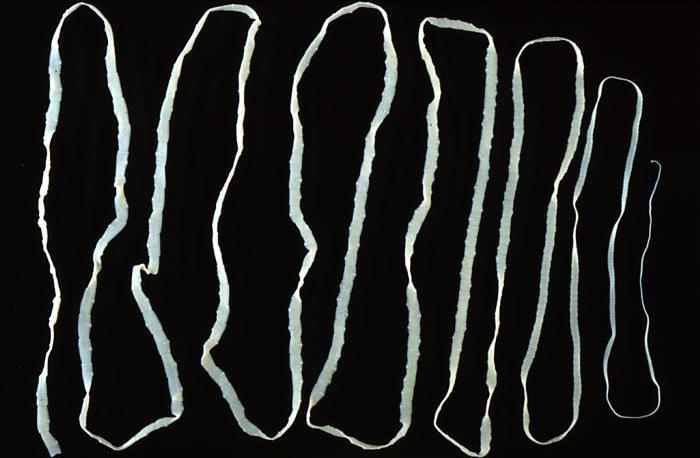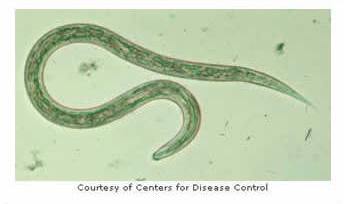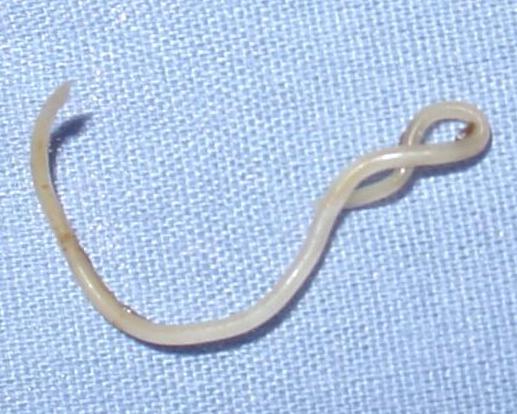Types of Dog Worms and Methods to Get Rid of Them
Pets are most vulnerable to worms compared to us. They are easily infected as they are exposed to infected ground, contaminated feces, and mostly puppies carry worms from their mothers before they are born.
There are different types of dog worms, which normally infect dogs. Out of the numerous worms, a few types of worms occur in dogs most commonly. Let us find out in detail about each of one of them and different ways to get rid of dog worms.
 Tapeworms
Tapeworms
Tapeworms are the most common of all worms. They are usually white in color, and are segmented into sections, which are connected with each other. They cause severe health problems in pets like vomiting, diarrhea, nausea and lack of energy.
Treatment for Tapworms
For tapeworms, a strong medication like Epsiprantel or Drontal can work. If symptoms seem more severe, it is better to take your dog to a veterinarian.
 Hookworm
Hookworm
Mostly in the shape of hooks, hookworms reside in the internal tract of dog’s intestines. They are more likely to cause many problems for your dog if not diagnosed and treated quickly. Pale gums, anemia, skin irritation, blood in stool and weight loss are some of the symptoms that help detect hookworm infestation.
Treatment for Hookworm
Treating your dog with dewormer helps in killing and preventing hookworms. It is important to continue the treatment for 3 months and regularly check your dog for a certain period to ensure there is no recurrence.
 Roundworm
Roundworm
These round-shaped worms commonly infect dogs through contaminated feces ingestion or from mother to puppies during nursing. Adult roundworms live in stomach and intestines and can grow up to 7 inches long. Due to their hard structure, they can live for months and years in soil. Your dog may show sighs of swollen belly, dull coat, diarrhea and vomiting. If not treated quickly may even result in death.
Treatment for Roundworm
Deworming treatment is necessary to prevent roundworm infestation. Medications like Canex and Popantel kill and protect against these nasty parasites.
Whipworm
Whipworms are like ticks. Mostly found in large intestine, these infernal worms suck your dog’s blood. Due to whipworm infection, your dog suffers from flatulence, anemia, bloody stool, weight loss and diarrhea. It is important to treat dog having whipworms, as this infestation is cause of other diseases also.
Treatment for Whipworm
Dewormer such as Fenbendazole is necessary in treating whipworm infection. It is important to repeat after 3 weeks.
Heartworm
Heartworm is the most dreadful among all the dog worms. It severely harms the most critical organs of the body – heart and lungs. However, treatment is quite risky as it involves chemical arsenic. If symptoms such as dull coat, coughing, and swollen belly are not taken seriously, it may be fatal. Before a dog is infested with heartworm, preventive treatment is ideal protecting the pet from severe infection.
Treatment for Heartworm
Heartworm preventives have to be administered regularly to control and prevent this dangerous infection. For effective treatment and prevention of heartworm infection, administer dewormer to puppy when he is six months old.
These are the most common worms found in dogs. For pet owners, it is important to take care of their dogs and keep an eye for any of these symptoms. It is always helpful to protect your pets from worm infections by treating them regularly with dewormers.
